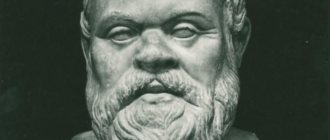Who is a speaker
An orator is a person who has oratory abilities, which consist of the ability to speak beautifully and convincingly, to master the tools of acting, and to have psychological knowledge.
The talent of eloquence can be innate. It is even believed that each of us has it, only to varying degrees. This means that anyone can develop this gift, taking into account individual characteristics and working on themselves.
With the development of oratorical skills comes the skill of public speaking, which has its own properties:
- special content of speech - linguistic and non-verbal, in the form of facial expressions and gestures, methods of influencing the listener;
- focus - receiving feedback from the audience;
- effectiveness - as a result of the psychological state of the speaker and his authority among the public.
But you can structure your speech competently if you use the rules of oratory:
- The presentation should be structured for better assimilation and accessible to understanding.
- Speech that is correct, expressive and without filler words is capable of capturing the attention of the public for a long time.
- The information provided must be useful and truthful.
- The emotional content of the speech and the dry language of numbers will create balance and will not allow the listener’s interest to evaporate.
- His attention should not be abused; conciseness and informational capacity of speech are welcome.
- The beginning of a speech and its final part have a greater effect on the audience than the content - this should be taken into account in the compositional structure of the speech.
- You need to speak to the audience in a language they understand, taking into account their intellectual level, age category, and social affiliation.
And then she will have the qualities necessary for oratory:
The image of a talented speaker is charismatic and closely associated with such characteristics and traits as self-confidence, inspiration, erudition, the ability to improvise, vividness of thought, strong voice, and expressive gestures.
We’ll talk later about how to learn public speaking on your own.
Transactional psychology
The sword and fire are less destructive than the tongue. (Richard Steele)
Don't always say what you know, but always know what you say.
(Claudius)
Speak only when you are calm.
[!] (Chinese proverb)
One word can lead to a quarrel forever.
(Russian proverb)
Stop talking immediately when you notice that you yourself or the person you are talking to are getting irritated.
(L.N. Tolstoy)
You should never say: “You didn’t understand me.”
It’s better to say: “I didn’t express my thoughts well.” (Robert)
In general, for information on how to prevent negative emotions, see the Anti-stress page.
- .
Types of eloquence
Depending on the composition of the audience and the topic, eloquence is divided into types:
Oratory speech can have different goals of influencing the listener and it happens:
- informational, introduces new facts, information, knowledge;
- entertaining, has a fun character;
- persuasive, in which the speaker seeks the listener's agreement with his point of view;
- uplifting, emotionally inspiring;
- calling to action, agitating to take action.
Types of performances
The purpose of public speaking is to motivate the audience to take certain actions.
The main criterion for the effectiveness of a speech lies in the actions of the audience. Based on this, there are four formats for performances.
Inspirational speeches
Speeches should sound like they encourage some action. For example, you are a seller of a certain product, and sales of this product depend on your performance.
You give a presentation that encourages the audience to sign an agreement with you or vote for your candidacy. These speeches require a serious approach and oratory skills.
Ritual performances
Ritual speeches are most often made by the compere when introducing someone, or opening speeches, and toasts also belong to ritual speeches.
The purpose of ritual performances is to change the attitude of the audience
If we are talking about a birthday person, then listeners should pay attention to him. If a speaker introduces himself, the audience should treat him better
Oratory in such a speech is necessary, since you need to be able to attract the audience and prepare them for further actions.
Informative speeches
Speeches that have the lowest form requirements are lectures. They do not oblige the speaker to be interesting, eloquent, prim and intriguing, since the audience is dependent on the speaker, and not vice versa.
Everyone must pass the session, everyone has the right to listen or not listen to the speaker. Unfortunately, not all modern lecturers master the art of oratory.
Entertaining Speeches
This is a professional art that requires certain knowledge, which is used by actors, theater-goers and comedians. Although among them there are also worthy speakers.
Jim Carrey gave a stunning and hilarious speech to university graduates that they will remember for a long time. We can only draw conclusions that no matter who you are, oratory skills will not harm, but will only help in any current situation.
Author of the article Elena Zhuk
The structure of oratory speech
In order for a public speech to achieve its goal and leave no one indifferent, it is built according to the plan and content in a certain order, which is called composition.
The introduction should attract attention, interest, establish contact with the audience, and give an idea of the topic of the upcoming message with a brief description of the issue.
The main part of a public speaking speech is the presentation of the material itself, argumentation, and the use of facts and logical evidence.
The conclusion is intended to summarize and generalize what has been said, emphasize the main idea, draw conclusions, and inspire listeners.
It is advisable to approach creatively when working on a composition. While maintaining a clear sequence and consistency of its elements, it is important not to lose your individual style.
Contents of classes
Different trainers practice different techniques; they may coincide in some ways, but not in others. Here, for example, is a plan on how to master public speaking, designed for 8 lessons.
The first lesson introduces terminology - rhetoric, stylistics, logic, the art of argumentation, oratory skills. The areas of application of skills are discussed, and it is clarified why it is necessary to master a literate literary language. Usually, at the end or beginning of the lesson, the lecturer gives everyone present the opportunity to make a brief greeting statement about themselves, their habits, hobbies, and character traits. Possible errors in speech are discussed, the concept of rhythm, pronunciation norms, intonation and articulation, and stress is given.
Lesson 2 is devoted directly to the beginning of teaching eloquence. Exemplary exercises and ways to improve the natural abilities of a speaker are described. It turns out who the person imitates (if he has an idol among famous people) and why. Workshops are held, one’s own and others’ mistakes are discussed, examples from the classics (writers, poets, actors) are studied. The role of posture, gestures, facial expressions in oratory is studied, voice strength, tempo, articulation and intonation are studied - when to use them and how. In lesson 3, we study congratulatory speech (social and everyday eloquence) - what it is, when it is pronounced, what the emphasis is on. What does it mean for the listener and the speaker, what is the difference.
The main canonical examples of such speeches, how to learn public speaking on your own, are examined in detail; at the end of the lesson, all those present try to deliver a congratulatory speech on a given topic. Errors are discussed, stress, intonation, and rhythm are checked.
Lesson 4 is devoted to business negotiations: how to prepare for them, how to conduct them, what you can (and cannot) do. The tactics of making compromises are studied. The concept of business communication is given as a complex skill in the ability to speak, give the interlocutor the opportunity to speak, offer mutually beneficial conditions (with argumentation), reach an agreement, use body language, gestures, facial expressions. The skill of using arguments in business speech must be considered: when to present them, what to emphasize.
Subsequent lessons are devoted to the ethics of business speech, the concept of the image of a business person, the correctness and accuracy of the words used, and political eloquence (with examples). Skills are consolidated, all errors are analyzed in detail, and adjustments are made.
The training ends with the formation of an individual style for each student, a thematic presentation according to an independently prepared plan.
Speech technique and voice
Those who have set themselves the goal of learning public speaking must definitely pay attention to the technique of public speaking: the ability to pause, the practice of setting intonations, body language, facial expressions, gestures, posture, and the general manner of speech of the speaker. The voice is no less important - its strength, timbre, overtones, attractiveness to listeners
The speaker must be able to captivate those present, literally captivate them, just as a professional reciter makes the audience in the hall listen to what he says. To do this, you will have to seriously train, correcting speech errors, expanding your vocabulary, working on facial expressions and intonations.
The voice is no less important - its strength, timbre, overtones, and attractiveness to listeners. The speaker must be able to captivate those present, literally captivate them, just as a professional reciter makes the audience in the hall listen to what he says. To do this, you will have to seriously train, correcting speech errors, expanding your vocabulary, working on facial expressions and intonation.
Behavioral techniques
It’s a good idea to take as a basis the behavior of a politician, public figure, or outstanding personality. To do this, you need to analyze the performance, analyze in detail what position the person is standing (sitting), the position of the head and body, hand gestures, changes in his facial expressions.
Working with the audience
The science called oratory, which teaches how to learn to speak beautifully, involves mandatory public speaking. Only by repeatedly polishing your skill as a speaker until the fear of an audience disappears and your speech becomes smooth and easy, like the singing of a nightingale, can you achieve some serious results. The main examples can be found on our website - these are workshops, video lessons, interviews with actors. But it is better to develop your own, unique style over time, summarizing the experience of famous speakers.
Features of oratory
Oratory speech is characterized by the following features:
Oral presentation. The process of communication with the audience occurs directly when voicing thoughts. Texts for public speaking are learned by ear and structured in such a way as to be easy to understand.
Availability of feedback. A good speaker feels the audience. He distinguishes mood, catches reactions to what is said, guesses emerging questions and flexibly builds further dialogue.
Use of various means of communication. The use of gestures, pantomime, intonation and other non-verbal methods is inherent in oratory, which distinguishes it from ordinary oral speech.
The relationship between the text prepared for speech and its oral interpretation. Choosing the right tone of communication helps to present information in an intelligible form and find contact with the audience.
Who will benefit from the courses?
There is an opinion that rhetoric is needed only for those who are going to connect their lives with the theater. At least for future film actors. But the lessons will benefit not only future actors.
Mastering the intricacies of oratory will come in handy:
For managers, clear, expressive speech will make encouraging speeches more pleasant, and edifying ones more convincing;
HR managers, even if they do not deal with employees personally, but by correspondence, will never be hindered by coherent written speech and the ability to accurately formulate a thought;
therapists will benefit from the habit of oratory to formulate what needs to be said briefly and as clearly as possible for the interlocutor, without general phrases, but with the necessary amount of emotionality;
For those who like to be the center of attention all the time, such classes will give them the skill to colorfully talk about any event, describe any subject in such a way that they will be listened to endlessly;
Missionaries and preachers should include a course in public speaking as part of their compulsory curriculum, because their success depends on how emotional, persuasive and attention-holding the speech is.
There is no area where rhetoric is not useful
In life or professional activity, in personal relationships or business - the ability to beautifully and accurately convey a thought to an interlocutor occupies an important place in the list of skills
Oratorical techniques
Oratory techniques are used to improve the perception of information. They work either by orienting the listener to figurative perception, or by stimulating his mental activity.
For example:
- visual comparisons and short illustrative examples are especially appropriate when conveying numerical material;
- repeating what has already been said in other words creates a new image;
- the allegory clearly illustrates the speaker’s ideas and thoughts;
- antithesis by contrast enhances their perception;
- hyperbole exaggerates those points that need to be paid attention to;
- rhetorical questions do not require an answer, but stir up interest;
- an insertion when a casual remark made draws attention to what was said;
- unexpected words and actions heighten the listener's curiosity.
What books are worth reading?
When answering the question of how to learn eloquence, it is useful to study special literature. To do this, it is not necessary to study the dictionary; there are various educational and interesting manuals.
The following educational books will be useful for self-study:
- Irina Golub’s book “The Art of Rhetoric. A manual on eloquence."
- Practical advice and recommendations are presented in the work of Radislav Gandapas “The Kama Sutra for the Orator”.
- “Oratory for Beginners” by O. Bolsunov is popular due to its thorough analysis of the mistakes that speakers make.
- Black Rhetoric by Carsten Bredemeier includes exercises and techniques to help you speak persuasively and negotiate with the right arguments.
Regular reading of fiction also enriches your vocabulary. Classical fiction allows you to study the stylistic presentation of thoughts and, to some extent, adopt the beauty of the presentation of the syllable.
Specialized business literature will help you learn to communicate competently and professionally in your field of activity.
Literature on the psychology of communication will help you correctly formulate the logic of speech. There are different categories presented here: negotiation techniques, communication skills and public speaking.
Literature on the psychology of communication teaches the correct formulation of the logic of speech. There are different categories presented here: negotiation techniques, communication skills and public speaking.
How to develop speaking skills
To master the secrets of oratory, you can enroll in courses and trainings on rhetoric, take lessons for beginners, choose online training, or study a self-instruction manual on eloquence. All these options are offered to our attention by the vast Internet.
If you like independent training in the development of public speaking, let's work on the technique of delivering a speech, prepare for a speech, learn how to interact with the audience and take on board some practical tips.
Speech technique
The sound of speech you want to listen to depends on the following components:
- Breath. The pace should be measured, with the inhalation being shorter than the exhalation. Do not inhale “all the way” so that you have the opportunity to take a breath. It's the same with exhalation. Special exercises help improve speech. For example, developing the skill of breathing from the bottom of your lungs will make your voice stronger and your speech fluent.
- Volume. By controlling his voice, a speaker influences the audience's perception of what he says. If your voice is naturally quiet, you can make it louder. To do this, read expressively out loud, count to ten as you exhale, gradually increasing the volume of your voice.
- Diction. Tongue twisters will help you speak clearly, clearly pronouncing sounds, if you are not lazy and do not forget to load your articulatory apparatus with them.
- Pace. We must try to express our thoughts at an average pace, without sputtering words or stretching them out. Since the temperament and internal state of a person at the time of the performance plays an important role here, it is important to calm down and tune in to a fruitful dialogue with the audience.
- Intonation. With its help, your speech will be remembered by the listener because it will be alive. Practice reading works of art aloud with expression, just like in school.
Preparing for the performance
At this stage, the text of the speech is prepared. We already know what a properly composed public speech should be. In order not to read from what is written, you should first of all memorize the text, and draw up a plan and main points for the meeting with the audience.
To be ready for improvisation, you must have developed logical and imaginative thinking, have a rich vocabulary and a broad outlook. Read different literature, keep abreast of social events.
To maintain the proper mood among the audience, stock up on a number of interesting facts, light jokes, and entertaining short stories.
To avoid being caught off guard by the technical side of your presentation, be aware of organizational issues: hall, audio equipment, video materials.
Black rhetoric
Black rhetoric - what is it? This is a demagogic technique that allows you to instill in your opponents a point of view that is unusual for them.
Language means have a magical power, which implies the ability to provide the necessary arguments, conduct a discussion, put emphasis, advocate and argue.
The speaker must prove that he is right. Black rhetoric has techniques that are contained in the rules.
- Expressing an idea that is important. There is no need to repeat the same phrases. They cause irritation, doubt and suspicion in the listener. Try to convey information using literary devices.
- Ask the right questions. The rule of communication is that whoever asks the most questions is in charge of the conversation. In black rhetoric, such a technique will be a losing one. If you want to ask a question, you need to think about it. The answer will depend on how the question is posed.
- Right answers. Let us note this point: the truth must always be told, but it is not necessary to always tell the truth.
This suggests that you need to answer the right questions appropriately. If you are uncomfortable answering, then carefully avoid answering. - Keep the initiative. If you lose the initiative during a conversation, you will lose your reputation with the listener. There is no need to rely on the politeness of the listener; stop rudeness and rudeness.
- A prolonged pause and silence. During this period, you have the opportunity to remember your arguments, but your opponent may have doubts.
Oratory for children
Today, rhetoric, as a scientific discipline about the art of oratory, is also in demand for the harmonious development of children. It develops the child’s personal qualities, teaches them the ability to communicate, express their thoughts competently and confidently, conduct a dialogue using intonation and facial expressions, and acquire the first skills of public speaking.
The objectives of teaching rhetoric are:
You can also work with your children at home:
- work on your speech technique, pronouncing tongue twisters;
- learn polite communication;
- read and talk a lot on different topics to increase your vocabulary;
- organize theatrical performances to develop acting skills;
- learn and read poetry with expression;
- practice performing in front of family and friends.
These classes will help your child become more confident and not be shy at public events, teach them how to establish contacts with people, and reveal their creative potential.
From rhetorical treatises
This part of the book includes fragments from two important treatises - “On the best form of speakers” ( translated by V. A. Alekseev, F. F. Zelinsky
) and “Orator” (
translated by M. L. Gasparov
). We sometimes perceive rhetoric solely as a practical skill to speak clearly and convincingly. But for Cicero, rhetoric is not just exciting speeches, it is a theater where all citizens meet and together develop a serious state position. For Cicero, a rhetorician who simply influences the crowd is bad, and a rhetorician who teaches responsible judgment to the crowd is good. Cicero’s goal is to prove that a rhetorician-philosopher will always defeat a simple rhetorician: the latter is not protected from bad taste, nor from pomposity, nor from following ready-made models, while the rhetorician-philosopher is critical of them, modest and cautious, and therefore his “acting ” is much more attractive even to the public, who initially did not trust him.In his treatise “On the Best Form of Orators,” Cicero formulates how a rhetorician can reveal his own talents, drawing on different genres of literature and different habits of perception. The purpose of the treatise is to show that a good speaker can work in any genre, use any honest arguments and thereby contribute to the prosperity of all aspects of the life of the state.
The treatise "The Orator" gives a number of practical tips regarding the selection of words and arguments, choice of style and persuasion strategy. Unlike his Greek predecessors, Cicero pays a lot of attention to the performance itself, the course of the speech, and talks about improvisation and the role of the speaker as an actor. It is important for him that the speaker not simply choose between the dryness and severity of the Attic school and the pomp and show of the Asiatic school, these two rival schools of rhetoric, which originated respectively in Athens and the Greek Middle East, but understand the shortcomings of both schools and what is simple Following student recipes, even the most excellent ones, will not create an ideal speaker. Cicero can be very ironic, arguing with both the Atticists and the Asianists; but with all his political conservatism, he calls on the speaker to update his tools and unexpected improvisations.








